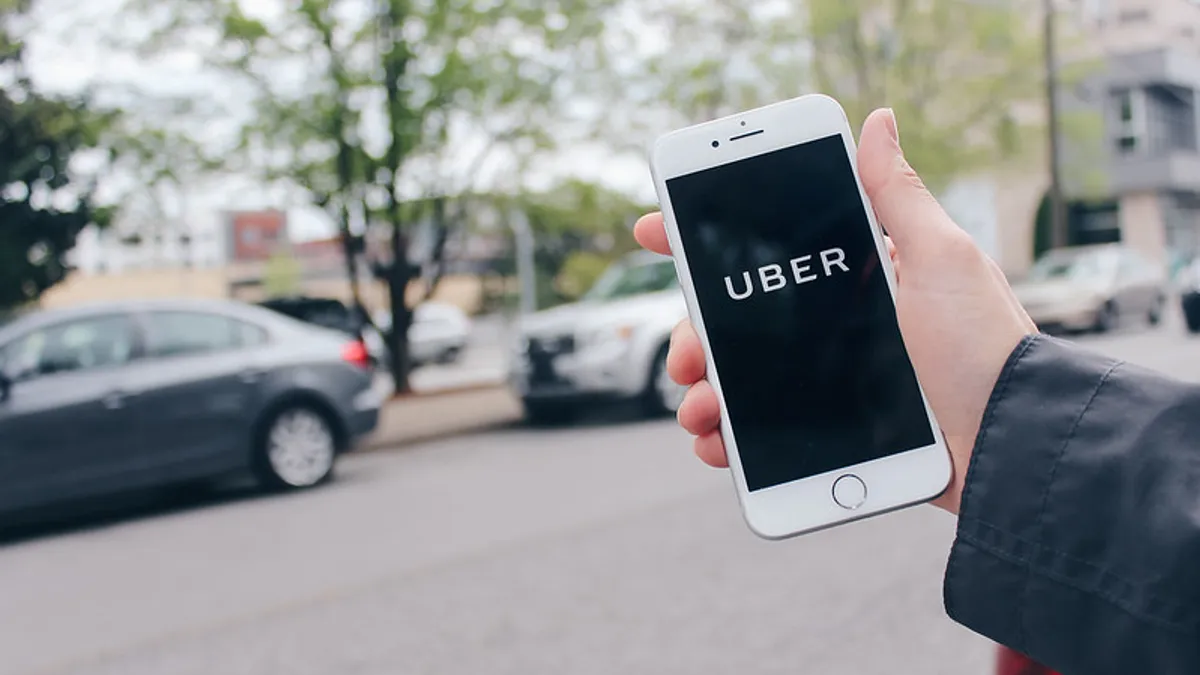Dive Brief:
- A panel of federal judges ruled last week that the 1st U.S. Circuit Court of Appeals does not have jurisdiction over an Uber driver's appeal of a district court's refusal to preliminarily enjoin Uber and require that the company classify himself and other drivers as employees (Capriole v. Uber Technologies, Inc., No. 20-1386 (1st Cir. March 23, 2021)).
- The driver in 2019 alleged Uber misclassified him as an independent contractor in violation of Massachusetts law, arguing for class-wide preliminary injunctive relief. The U.S. District Court for the District of Massachusetts denied the motion, but it granted a motion from Uber to transfer the case to the Northern District of California. Uber separately filed a motion to compel arbitration, but the district court did not address that motion, nor did it address a second motion for preliminary injunction from the driver.
- In May 2020, the Northern District of California granted Uber's motion to compel arbitration and denied the driver's second motion for preliminary injunction. The driver appealed to the 9th Circuit. The 1st Circuit, however, held that it had no appellate jurisdiction over the driver's first preliminary injunction motion; "The final judgment in California means that the arbitrator, not us or another court, is to decide any claim for relief in this case unless and only if the Ninth Circuit reverses."
Dive Insight:
The case has moved to the 9th Circuit, located in Uber's home state of California, where the company has faced ongoing legal challenges to its business model of classifying drivers as independent contractors.
In 2019, California enacted Assembly Bill No. 5, which codified a worker classification test first articulated by the California Supreme Court — known as the "ABC" test — that observers argued would particularly impact gig-economy workers including those on platforms such as Uber. A year later, a state appeals court affirmed a lower court's ruling compelling Uber and competitor Lyft to reclassify their California drivers as employees.
That decision was handed down weeks before California voters were slated to vote on Proposition 22, a state ballot initiative backed by Uber and other gig-economy firms that designated app-based workers on such platforms as independent contractors. Voters approved the measure in November. In February, the California Supreme Court tossed out a lawsuit from app-based drivers and other parties who alleged that Prop 22 violated the state's constitution, The Los Angeles Times reported.
However, the same court also reaffirmed in a January decision that its "ABC" test applies retroactively. The decision "materially impacts only a limited number of cases that were either (1) pending at the time Dynamex was decided; or (2) involve pre-Dynamex conduct where the statute of limitations has not yet run," according to attorneys with Fenwick & West LLP.
Meanwhile, other states have enacted similar classification standards. FedEx, for example, agreed to pay $2.4 million to resolve claims the company misclassified drivers as independent contractors under the state's classification test, also known as the "ABC" test.














